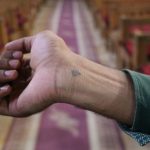By Coptic Solidarity –
The US Commission on International Religious Freedom (USCIRF) released its annual report on April 21, 2021 which monitors significant changes in religious freedom during 2020. Each year, Coptic Solidarity reviews the USCIRF report and publishes an assessment of the portion on Egypt, including areas of agreement, constructive criticism, and recommendations for future reports. USCIRF reported that the situation of religious freedom in Egypt in 2020 was “largely static.” With the claim of little change, Coptic Solidarity refers readers to USCIRF’s 2020 Report on Egypt: An Assessment by Coptic Solidarity
Given the challenges of researching and verifying reports during the time of COVID-19, Coptic Solidarity commends USCIRF staff for their dedicated efforts to produce this accurate report. Some information was difficult to verify with changes related to public worship due to COVID-19. One such example is that the number of church closures was included in the 2020 report, but not in the 2021 report.
Positives
- The USCIRF report acknowledged the Coptic communities “longstanding concerns regarding the potential targeting of Christian women by radical Islamists for abduction and forcible conversion.” Previous reports have omitted this serious threat to the Coptic community. Coptic Solidarity published a report titled ‘Jihad of the Womb’: Trafficking of Coptic Women & Girls in Egypt in September 2020, which addresses the widespread practice of abduction and trafficking of Coptic women and girls in Egypt and was submitted to relevant UN entities as well as to the US Department of State and US Embassy in Cairo. This report is the first to be published on the topic in a decade, and one with current, unresolved trafficking cases.
- In Coptic Solidarity’s 2020 analysis, we recommended that USCIRF acknowledge the exclusion of Copts from the national soccer team and are pleased to see that this recommendation was accepted. Coptic Solidarity is the only NGO to have researched and submitted cases of discrimination against Coptic footballers to FIFA, the IOC, and to governmental entities such as USCIRF. Numerous NGOs and media outlets reference single articles, but Coptic Solidarity is the original source on this issue and our report, Discrimination Against Copts in Egyptian Sports Clubs should be cited by both the Department of State and USCIRF.
- Coptic Solidarity also applauds the USCIRF’s explanation of “the overlapping interests of religious freedom and broader human rights” as demonstrated by the Egyptian government crackdown on civil society, and all perceived as a threat to regime stability. The report notes that the many arrests of human rights activists and researchers “demonstrate a systematic and ongoing effort by the government to suppress and challenge its narrative of progress and its efforts to bolster its international image.” It is critical that USICRF named imprisoned Coptic activist, Ramy Kamel, in the 2020 and 2021 report as he has now been subjected to 18 months in solitary confinement under false charges while being denied his legal rights. The report also highlighted the numerous cases of prisoners of conscience in Egypt which continues to be one of the most concerning trends under the current Egyptian administration.
- USCIRF again noted key points such as how customary reconciliation sessions discriminate against Copts, how the Egyptian justice system continues to provide impunity for those who attack Copts and their properties, and how blasphemy laws are disproportionately used to target Copts and other religious minorities in Egypt.
- Unlike previous USCIRF reports, the 2021 report did not rely on unsubstantiated rhetoric and claims such as:
- Efforts by Sheik El-Tayeb of al-Azhar to appear inclusive while his actions and speeches to Muslim audiences contradict his message to Westerners. This is a major improvement.
- Not referencing unsubstantiated claims regarding improvements in Egyptian curricula on language and history of Copts and other religious minorities
Constructive Criticism
Coptic Solidarity concurs with the majority of the USCIRF Egypt chapter and appreciates the efforts of the USCIRF to continually research, evaluate, and improve their annual report. There are just a few points on which Coptic Solidarity would recommend alternative views and solutions.
- Country of Particular Concern Designation
Coptic Solidarity continues to advocate that Egypt by placed on the CPC list. USCIRF has placed Egypt on their Special Watch List (previously called Tier 2 List) for the previous 4 years meaning they engaged in or tolerate at least one of the three elements in the standard of “systematic,” “ongoing,” or “egregious” violations. Essentially, the USCIRF’s view on qualifying violations has remained the same over the last five years. While there is room for disagreement on what constitutes “egregious” violations, it is worth noting that the USCIRF did not believe Egypt qualified during previous years with more anti-Christian mob violence, multiple bombing attacks on churches, and individual murders such as occurred in el-Arish in 2016 and the continued murders and attacks on Copts and their properties which have continued to this point. It begs the question, what WOULD qualify as egregious religious freedom violations in Egypt?
- Unified House of Worship Law
The USCIRF recommended that Egypt expedite approval of church registrations under Law 80 of 2016. This is an excellent addition to their recommendations from 2020, as only 32.6% of churches have received preliminary government approvals, with just a tiny fraction of these being final approvals. This means that most of the approvals are conditional, often imposing onerous conditions on churches that make it difficult to ever receive a final approval. The most just solution would be for the Egyptian government to pass a unified house of worship law that applies to all faith groups equally and does not favor just Sunni Muslim mosques. Failing that admittedly difficult goal in a country like Egypt, the least would be to set a time limit of about 12 months, after which all pending applications should be automatically given final approval.
- Systematic & Systemic Discrimination
Coptic Solidarity encourages the USCIRF to expand their reporting on religious freedom for Copts, beyond church permits and violent attacks. Those issues represent just the tip of the iceberg, with the far more common forms of discrimination and persecution which impact the entire Coptic community being less visible to the world. This systematic and systematic discrimination is perpetrated both by the Egyptian government and society. Copts are still seriously underrepresented and are subjected to a ‘glass ceiling’ of 2% in entries to the military and police academies, the various branches of the judiciary positions as well as the diplomatic corps and the academia. They are totally absent in various “sensitive” services such as security apparatuses and the presidency’s administration. There are no Copts serving as president or vice-president in any of the government’s 25 public universities, which are financed by all taxpayers. These public universities include over 450 faculties, with more than 1,550 leadership positions; Only a handful of these are occupied by Copts. In the public universities in Minya and Assiut, Copts represent 25-30% of the total students, yet less than 5% of the faculty.
Recommendations
- Urge Egypt to pass a unified houses of worship law
- Include an explanation as to why the USCIRF does not believe Egypt meets the CPC status
- Refer to Coptic Solidarity’s newly published FACTS vs. FICTION: Coptic Solidarity’s Fact-Checking of the ‘Religious Freedom and Diversity’ Document Issued by the Embassy of Egypt in the U.S.A which addresses each claim, point by point. In January, the firm Brownstein Hyatt Farber Schreck LLP distributed “on behalf of the Ministry of Foreign Affairs of the Arab Republic of Egypt” a pamphlet titled: Strengthening National Unity: Religious Freedom and Diversity in Egypt, under the header of Embassy of Egypt, Washington, D.C. Brownstein et al was contracted by Egypt in November 2020 for lobbying activities. This document focuses primarily on the situation of the indigenous Coptic Christians in Egypt. It contains numerous false claims, historical inaccuracies, and overall is highly misleading regarding the true situation for Egypt’s Copts. It is critical that the USCIRF report not follow the Egyptian government’s narrative and issue focus, but rather include the full perspective of systematic and systematic discrimination facing religious minorities in Egypt.
- The inclusion of personal views of Commissioner Johnnie Moore, which support leaders of countries such as Egypt and Saudi Arabia, and make unsubstantiated claims, detract from the credibility of USCIRF as a whole.





